Here's the new Evija X, going for the Green Hell record very soon
Take a look at that upturned front lip. I don't think I've seen that before, at least nothing as aggressive as that. Must be all sorts of tricks going on underneath to get it to work properly
Discuss and lay your aero knowledge on me
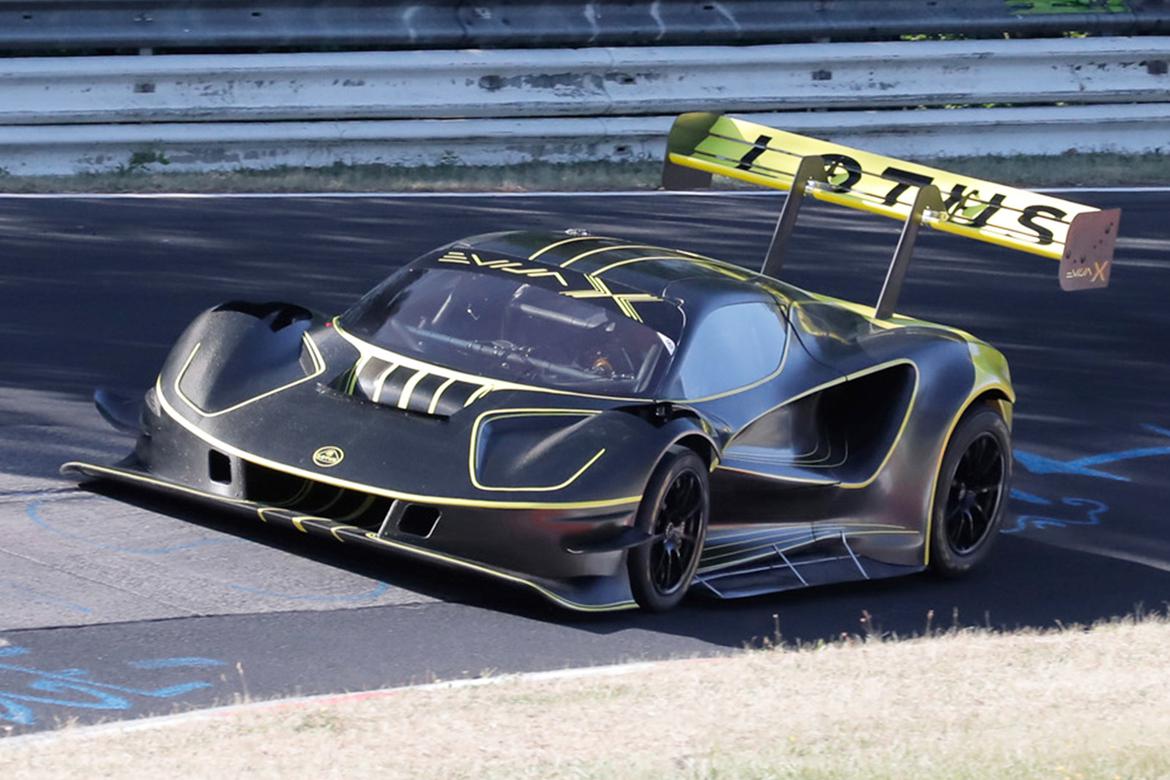

kb58
UltraDork
6/16/23 2:53 p.m.
Well, presuming it works, and that we don't know as much as they do, everyone's going to use reverse circular logic and come up with reasons why it works...
Probably should've been in the Aero section but also interested. I've seen anti-porpoising kick-ups in the center of a splitter before, but not a fully tobogganized shape like this 
The height of that rear wing also says they're not taking chances with turbulence from the car body...
mr2peak said:
Take a look at that upturned front lip. I don't think I've seen that before, at least nothing as aggressive as that.

pretty similar to the edge on the Ferrari 488 GT3
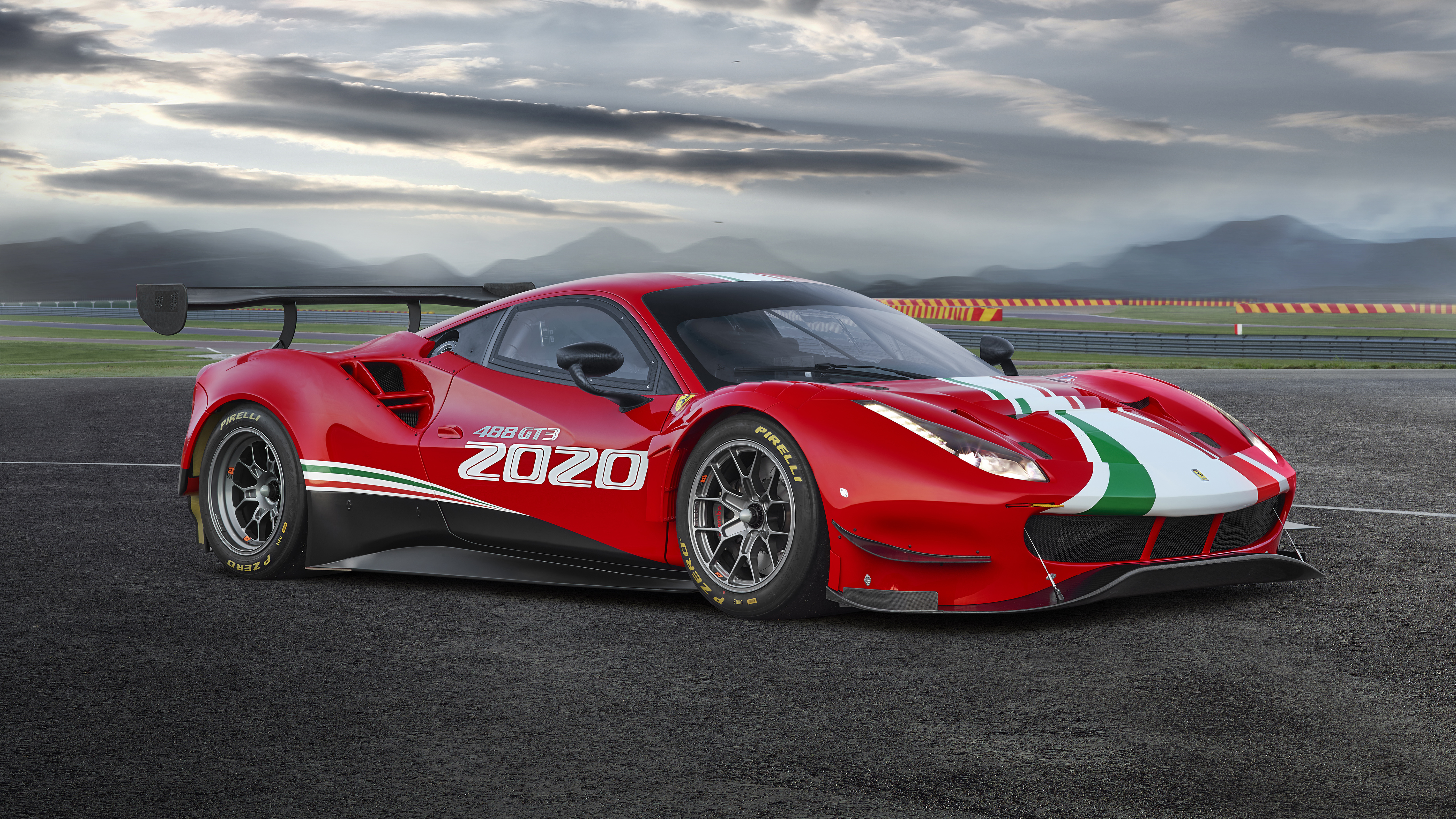
and it has carried over to the newer 296 GT3...
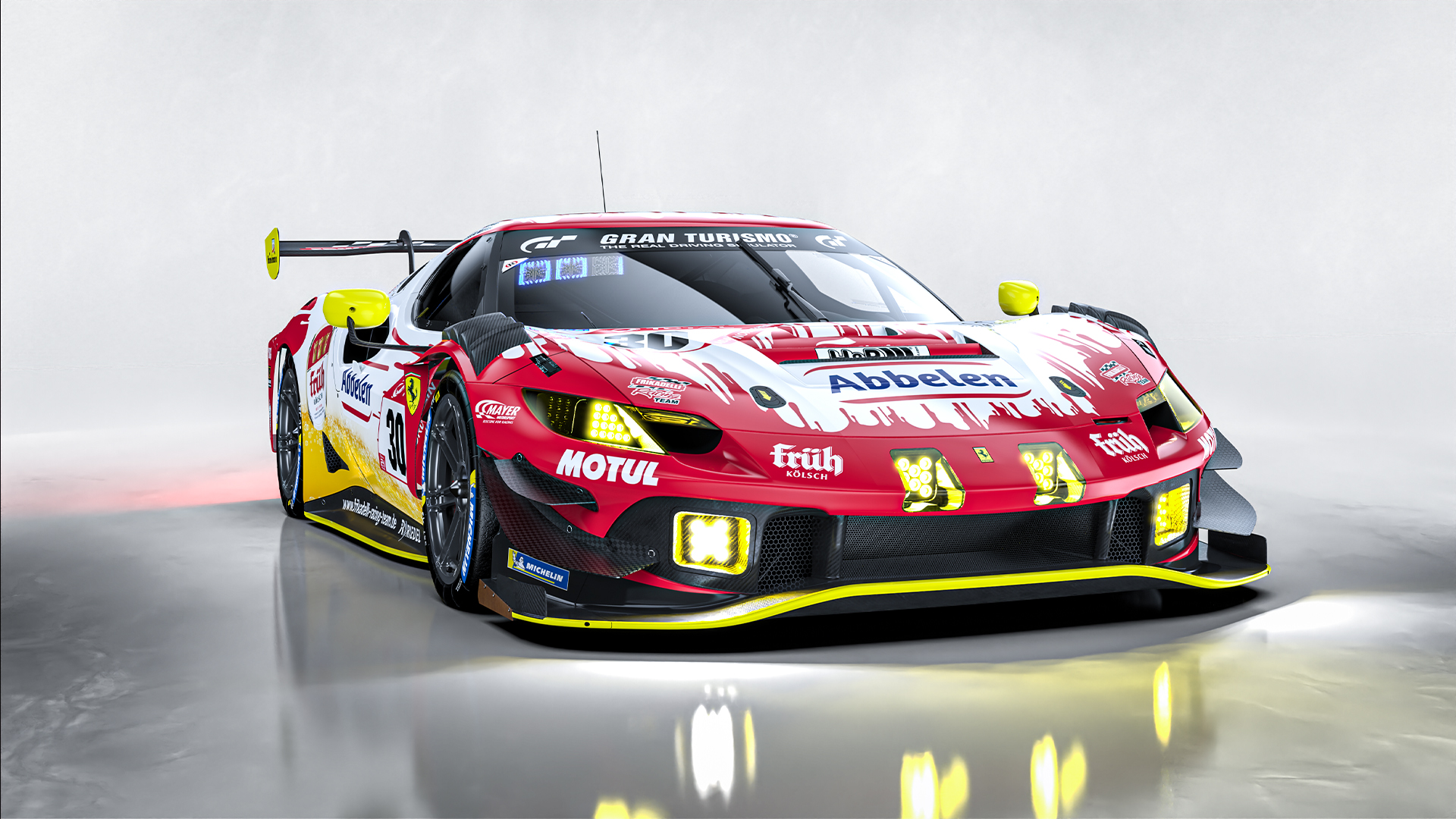
with the main difference being the 'span width' that the raised front lip section has. with the GT3 being (iirc) FIA homologated... there's a significant precedence about limiting the width of this type of section from the development of the LMP rules from 2000 on.
Maybe a mod can move this to the Aero section? My apologies.
Do you know why the LMP rules limited the section width? Is it a stability issue? I'm very intrigued
Relevant anti-porpoising article/post
https://forum.kw-studios.com/index.php?threads/porpoising-what-is-it-and-how-do-you-stop-it-happening.16082/

The general idea behind the turned up nose on the splitter (any of the images shown) is that the air begins to turn or displace well before the body. Since the air going under and over has to diverge from its vertical location there is a local angle of attack where the air is trying to get pulled under the splitter leading edge. The radiused and rolled up splitter leading edge helps to reduce the effective local stall and performance loss at the leading edge.
As to the width, there are two approaches. With only a central raised section, the majority of the air going under the splitter is drawn thru the center and that is the most important flow since it is used along the entire length of the car. The outboard edges see a local high pressure area right in front of the front tires, so inducing more flow speed on those outboard sections only makes that worse. However, if there are local splitter diffusers in front of the front wheels the high pressure effect can be offset and the local downforce used at an advantage.
Additionally, the low outboard sections will generally stall first at low clearances and relegate the front ride height to a somewhat higher value for maximum downforce. With the raised leading edge across the entire width, there is a strong possibility of greater overall downforce at a lower clearance, but with a significant opportunity for serious splitter stall. Ultimately the full width raised leading edge will require much strong attitude control at low gaps, leading to a more stiffly sprung front suspension that typically comes with significant aero loading.

I was under the impression that limiting the width of the raised center-section on Le Mans Prototype and GT cars was 1) to reduce downforce; 2) to stop them from being all Swedish Chef Pancakes:

Der Flappin Jackin Flippins
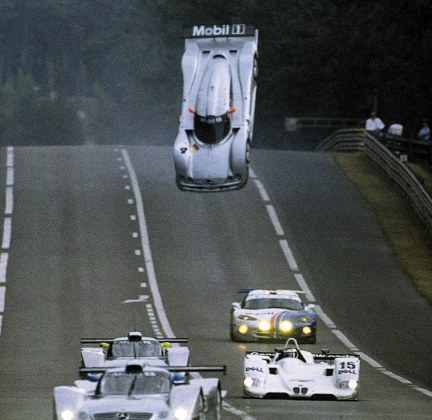
based on Stafford's description... by forcing the outer sections to be lower and their underside non-curved (or, less curved), they become less sensitive to ride height, and they also depend more on "positive pressure"-based downforce from their upper surface. That high-pressure downforce generation generally imposes higher drag. But it has the benefit that, if the middle section loses downforce due to ride height disruption, that disruption will minimally effect the outer portions... so that front downforce isn't completely lost with changes in ride height / road imperfections, at the "cost" of theoretically higher drag. So it makes the car more resistance to Pancake Flipitty-Flopping Der Flipflipflipflipflip.
ymmv, irrc, could be more to it, #StaffordKnowsBest, etc.

BA5
HalfDork
7/14/23 2:40 p.m.
I always presumed that the raised splitter center section increased the pressure differential down stream. By increasing A at the inlet, you're increasing v downstream, which results in lower pressure. Although i guess that only works if the splitter goes back down after the front section. Plus it'd be less susceptible to stalling/choking when the car pitches, you would risk closing off the front edge because it's raised a couple of inches.
Was watching Goodwood runs and noticed that the VW ID.R had a similar splitter on its fastest run:
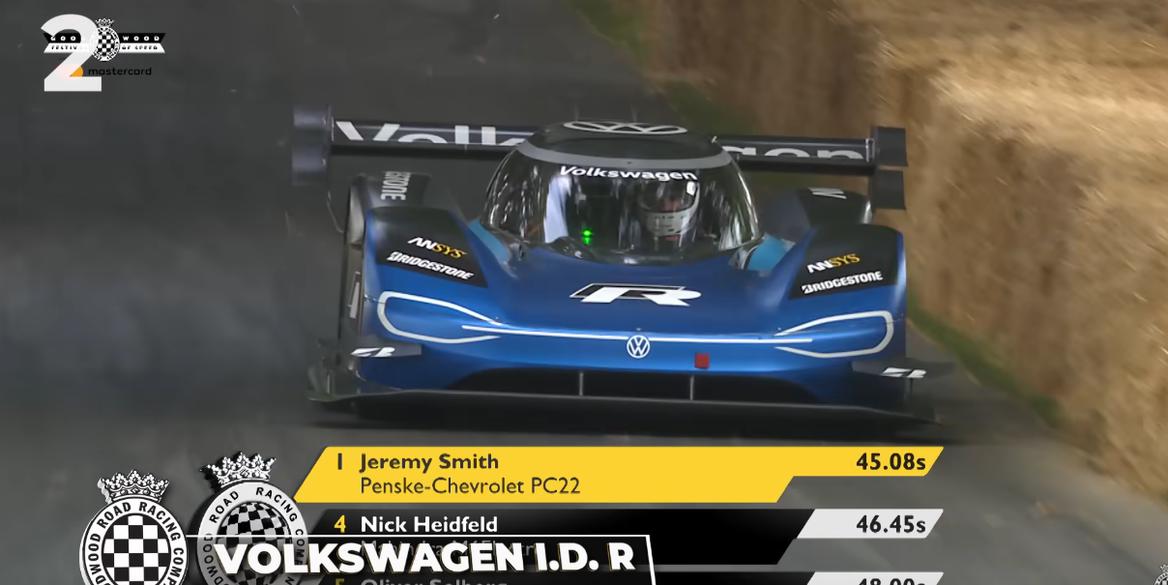
Update, they've gone back for another run and set some records: 3rd OVERALL  2nd fastest EV behind the ID.R, fastest production-based EV (surpassing the NIO EP9 which is arguably a production EV):
2nd fastest EV behind the ID.R, fastest production-based EV (surpassing the NIO EP9 which is arguably a production EV):

Those full-width raised splitter leading edges must be accompanied by serious, properly calculated/engineered undertrays. Last I did some geeking on aero, I read something about most cars having a degree of rake front to back which starts at the front subframe. That built-in rake essentially extends the effectiveness of the rear diffuser and accelerating the air under the front of the car using that upturned splitter design (compounded with strategic undertray design and features) is akin to having the rear splitter acting as far forward as the lowest point of the car out front (subframe). There are quite a few production cars that use an upturned splitter design in the middle but only the most aerodynamically tuned ones extend all the way out. I don't recall seeing anything like this even on time-attack cars and my guess is that one needs to do proper CFD on the entire car to make good use of this feature which otherwise may cause lift and other issues (not nearly competent enough to identify these "other" potential issues). As it stands, I look at it the same way I would look at an airplane wing but upside down and going all the way from front to back of the car, keeping in mind rake and the fact the back of a rear diffuser sits way higher than the top of the front splitter leading edge so the overall profile increases downforce on the entire car despite the increased pressure under the front lip (seen in isolation from other components of the system). These cars tend to manage air in such a way as to guide it outwards/upwards, wherever they can under the car, thus creating a low pressure under the car in as many places as possible (ducts, spats etc...) to such an extent that the high pressure from the upturned lip is vastly compensated for. Adding to that, bonnet vent extraction and wheel well pressure extraction features as well as canards means Bob's your uncle.
I so enjoy geeking out on this stuff that I plan on building a whole lot of aero features for my bone stock bmw E82 120d daily driver. I was planning on adding that upturned splitter lip in the middle seeing as I have no idea how to deal with managing air for the whole width of the car front to back without rebuilding the entire body, let alone doing CFD. It's not like I'm gonna do time-attack races anytime soon but I just like the idea of having some functional aero features on the car. It'll also be a great excuse to redesign the car (hopefully retaining an OEM+ look) to integrate these features. Looking at a 1M rear diffuser, it looks terrible; not really worthy of even being called a diffuser so I'd like to address these things.
I plan on taking some inspiration from the latest porsche GT3 RS which has some super cool stuff going on in this department, including things like the carbon air diverters for brake cooling out front and the front fender vertical wing things behind the front wheels with the leading edge turned slightly inwards. I'm all about details like these. The tough part will be to make it look good and coherent with the base design of the car. I'm not breaking records so it doesn't need to be 150% effective, just better than stock and aesthetic.
atp out 























